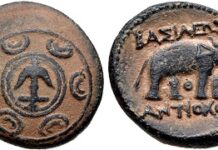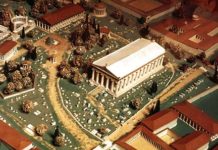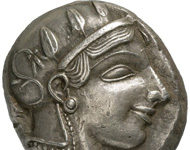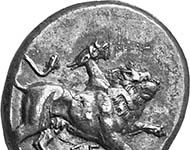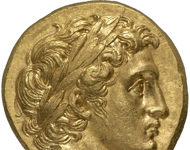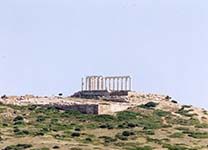Collecting Seleukid Coins – Part II
David Michaels provides an overview of the history and coinage of the Seleukid Empire. The article also includes a rarity guide and a brief bibliography of historical and numismatic references to get any new collector started on the path to a thriving collection.
Olympia and the Eleans – The introduction of the cult of Hera
For us Olympia seems to be equivalent to the peaceful contest of all nations. In referring to ancient tradition we forget entirely that ...
Human Faces Part 2: Athena and Athens
Why is it that for centuries – or rather thousands of years – the head has served as the motif for the side of a coin? And why has this changed in the last 200 years? Ursula Kampmann poses these questions in her book ‘MenschenGesichter,’ from which the texts for our new series are taken.
Sikyon and its Chimaira
Why do we find Chimaira on the staters of the city of Sikyon? A search for traces...
Human Faces Part 4: Philip II as Hegemon of Greece
Why is it that for centuries – or rather thousands of years – the head has served as the motif for the side of a coin? And why has this changed in the last 200 years? Ursula Kampmann poses these questions in her book ‘MenschenGesichter,’ from which the texts for our new series are taken.
The Laurion silver
But one day, one noon, I believed I had found it. I was at Sounion all by myself; the summerly sun was burning; the wounded pines dripped resin...
Ancient Sybrita: the mint where the most beautiful of Crete’s coins were made
The ancient community of Sybrita in Crete stills remains something of a terra incognita. That is even the more surprising given the fact that gorgeous silver coins had been produced there in Hellenistic times that celebrate Dionysos, the god of the wine.



